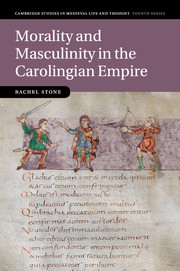Book contents
- Frontmatter
- Contents
- Illustrations
- Acknowledgements
- A note on translation
- Abbreviations
- The Carolingian empire
- Genealogy of Carolingian rulers
- Chapter 1 Introduction
- Chapter 2 Moral texts and lay audiences
- Chapter 3 Warfare
- Chapter 4 Imagining power
- Chapter 5 Central power
- Chapter 6 Personal power
- Chapter 7 Power and wealth
- Chapter 8 Marriage
- Chapter 9 Sex
- Chapter 10 Men and morality
- Bibliography
- Index
Chapter 7 - Power and wealth
Published online by Cambridge University Press: 05 November 2011
- Frontmatter
- Contents
- Illustrations
- Acknowledgements
- A note on translation
- Abbreviations
- The Carolingian empire
- Genealogy of Carolingian rulers
- Chapter 1 Introduction
- Chapter 2 Moral texts and lay audiences
- Chapter 3 Warfare
- Chapter 4 Imagining power
- Chapter 5 Central power
- Chapter 6 Personal power
- Chapter 7 Power and wealth
- Chapter 8 Marriage
- Chapter 9 Sex
- Chapter 10 Men and morality
- Bibliography
- Index
Summary
Most early medieval nobles were distinguished by their wealth as well as their power. The highest Merovingian nobility were already extraordinarily rich by European standards. Such wealth took a variety of forms. Most significant was land, vital not only as a source of rent and marketable crops, but as a key component in patronage networks. The importance of land is shown by a passing comment in the Gesta Fontanellensis about an abbot who had given away monastic land in benefice: ‘Indeed, such rectors are worse than pagans, since were a pagan to burn the place with fire, yet he would not take the land with him.’
Carolingian wills show both the quantity of treasure that nobles held, and its cultural significance: the will of Eberhard and Gisela makes important symbolic legacies of weapons and clothing as well as books. Poetry, too, expresses the emotional force of precious objects: Waltharius, the Paderborn epic and Ermoldus’ poems are full of gold and jewels. There was also a long tradition of religious texts identifying such ‘treasure’ with goodness.
- Type
- Chapter
- Information
- Morality and Masculinity in the Carolingian Empire , pp. 214 - 246Publisher: Cambridge University PressPrint publication year: 2011



